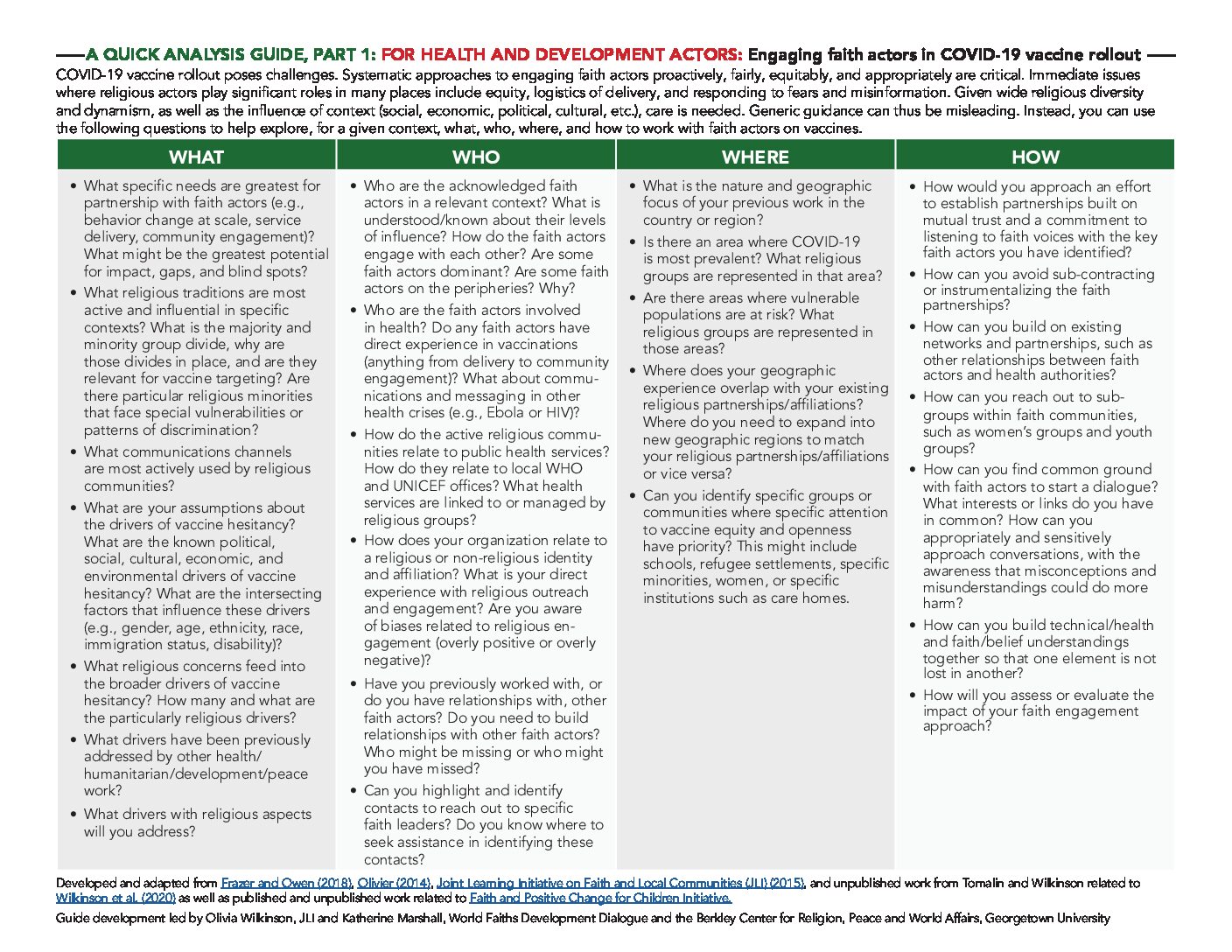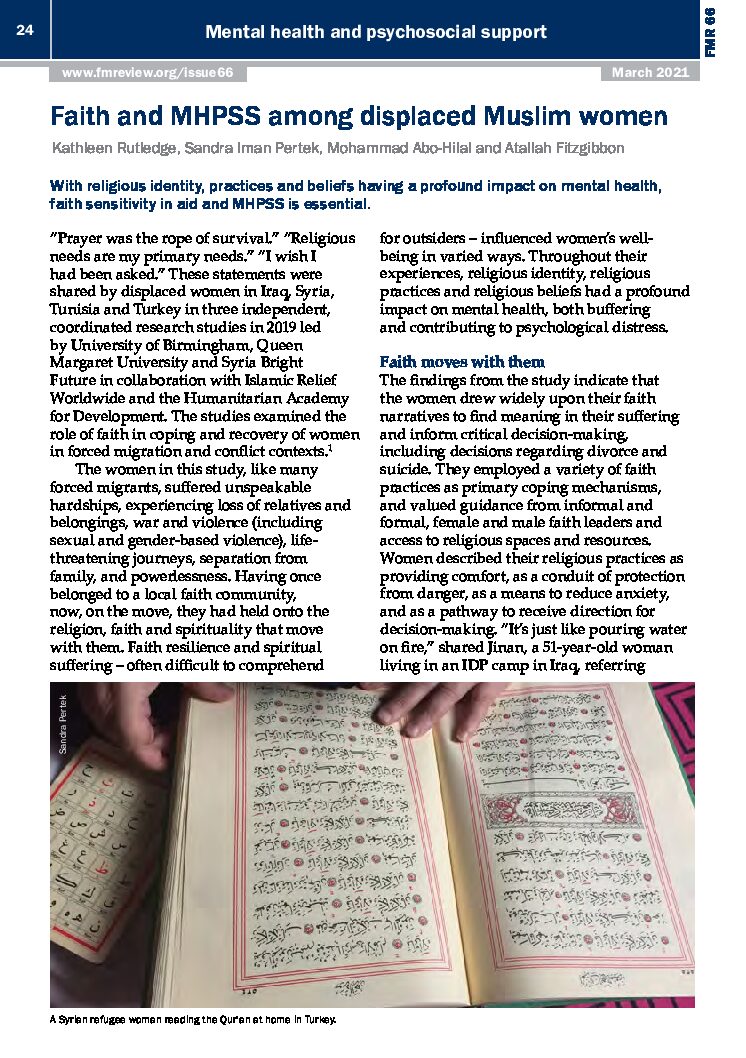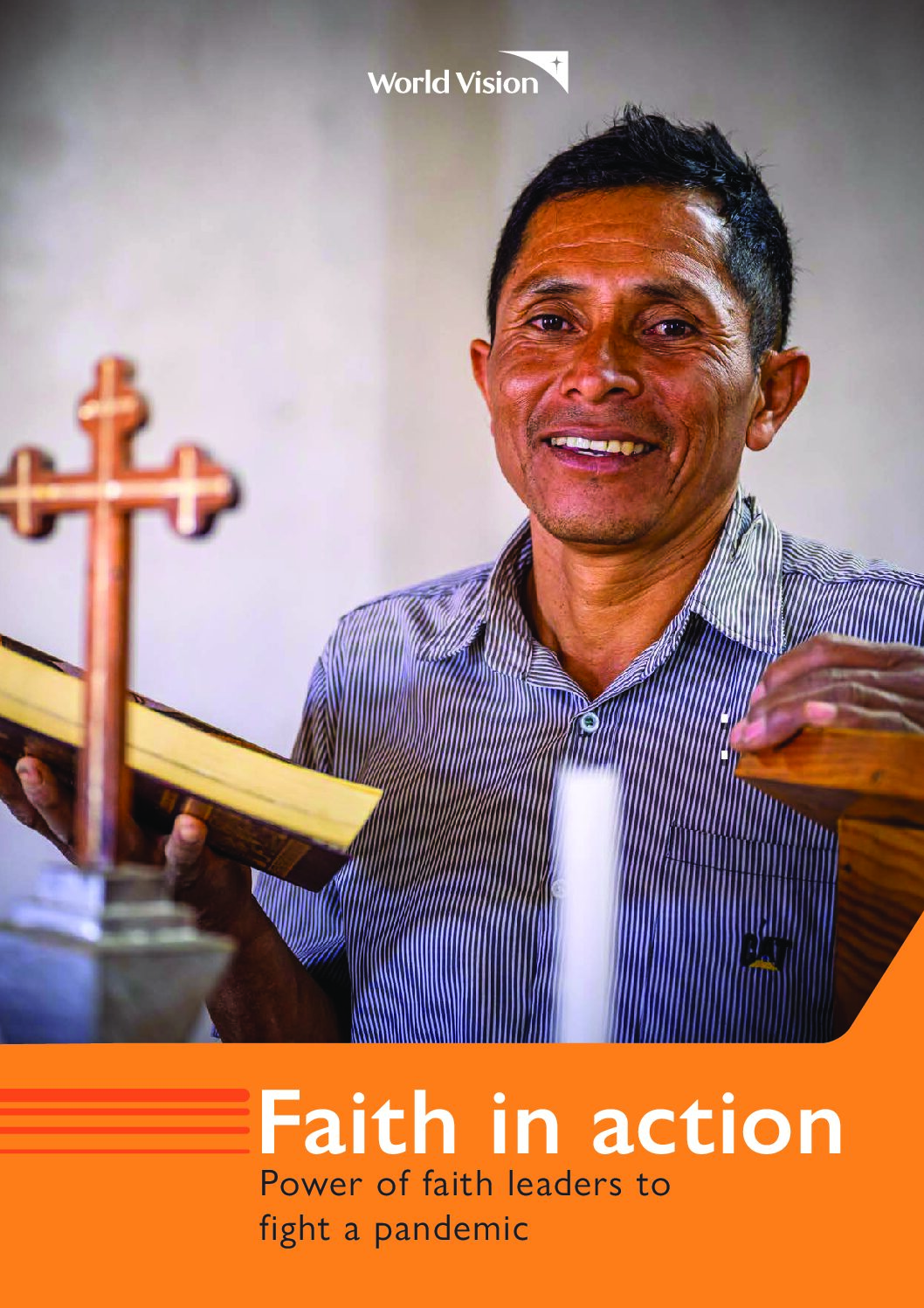JLI Fair & Equitable Approach
JLI is undertaking a process to re-envision its joint learning and knowledge partnerships. The Fair and Equitable Approach is shifting power, resources, and leadership to local, national, and regional levels, by building inclusive and accessible Regional Joint Learning Hubs.
These new Regional Hubs bring together researchers, policy-makers, practitioners and local faith actors to define and lead their own learning and evidence agendas.
The initiative was inspired by JLI’s Commitment to Action for Racial Justice and Solidarity, and ultimately aims to create safe, inclusive spaces to confront power inequalities in knowledge and evidence.
Regional Joint Learning Hubs :

Are inclusive of national and local languages

Are accessible to different faith communities, including non-dominant faiths

Reach out beyond traditional humanitarian and development organizations

Integrate fair and equitable approaches across research and practice
Background
Local communities are central agents in their own liberation, yet they continue to be marginalised in decision-making and excluded from equitable resource allocation by the international aid sector. Racist and colonial mindsets continue to permeate aid agencies and systems globally. One symptom is underestimating the capacities and expertise of local faith actors.
Confronting asymmetries of power is uncomfortable and requires Northern organizations to be willing to give up privilege and share power. JLI aims to address issues such as a lack of acknowledgment of colonial legacies, the dominance of Western theological constructs, the marginalization of indigenous knowledge and belief, complicity in broader racist structures in aid and development, and inequity between local and international actors.
Agenda for change
Over the past years, the JLI has focused on the following priorities to develop new models of joint learning. These two pillars feed into restructuring JLI’s leadership and governance.
- Regional Listening Dialogues & Regional Joint Learning Hubs: Regional Listening Dialogues are open discussion spaces led by local and national faith actors to critically reflect on the way evidence is generated and used in the region, and the extent to which international research and aid agendas align with local priorities. The Listening Dialogues will lay the foundations for Regional Joint Learning Hubs, creating a platform for regional actors to define and lead their own evidence agendas.
- The Fair & Equitable Dialogues are a series of conversations, learning events, and creative interactions, across multiple online and offline platforms, to chart the reflections and journeys of JLI’s members on championing fair and equitable practices in the creation and use of evidence with local faith actors. The Fair & Equitable Dialogues launched in September 2021 with a series of Faith Dialogues workshops. The Faith Dialogues workshops brought together researchers and practitioners from different faith backgrounds around the world, to reflect on religious teachings and spiritual traditions relating to power, oppression, and decolonization. Between December 2021 and April 2022, JLI partnered with KAICIID to deliver a webinar series exploring how local faith actors challenged power dynamics in the international humanitarian and development sectors.Over 2022 and 2023, the Fair & Equitable Dialogues focused on the themes of capacity-sharing and creative documentation.
Report and Guiding Principles for a Fair & Equitable Approach
As part of JLI’s commitment to fair and equitable research and partnerships, we have developed resources to guide and reflect on our efforts. The report, Towards a Fair and Equitable Organisation, explores JLI’s journey since launching the Fair & Equitable Approach in 2021, highlighting lessons learned, challenges, and progress in shifting power dynamics in research and collaboration. Complementing this, the Guiding Principles for a Fair & Equitable JLI outline key commitments and practical steps to ensure that fairness and equity remain central across JLI’s work.
Both resources are available in English, Spanish, and Arabic.
Towards a Fair and Equitable Organisation: Experiences from the Joint Learning Initiative on Faith and Local Communities
Guiding Principles for a Fair & Equitable JLI
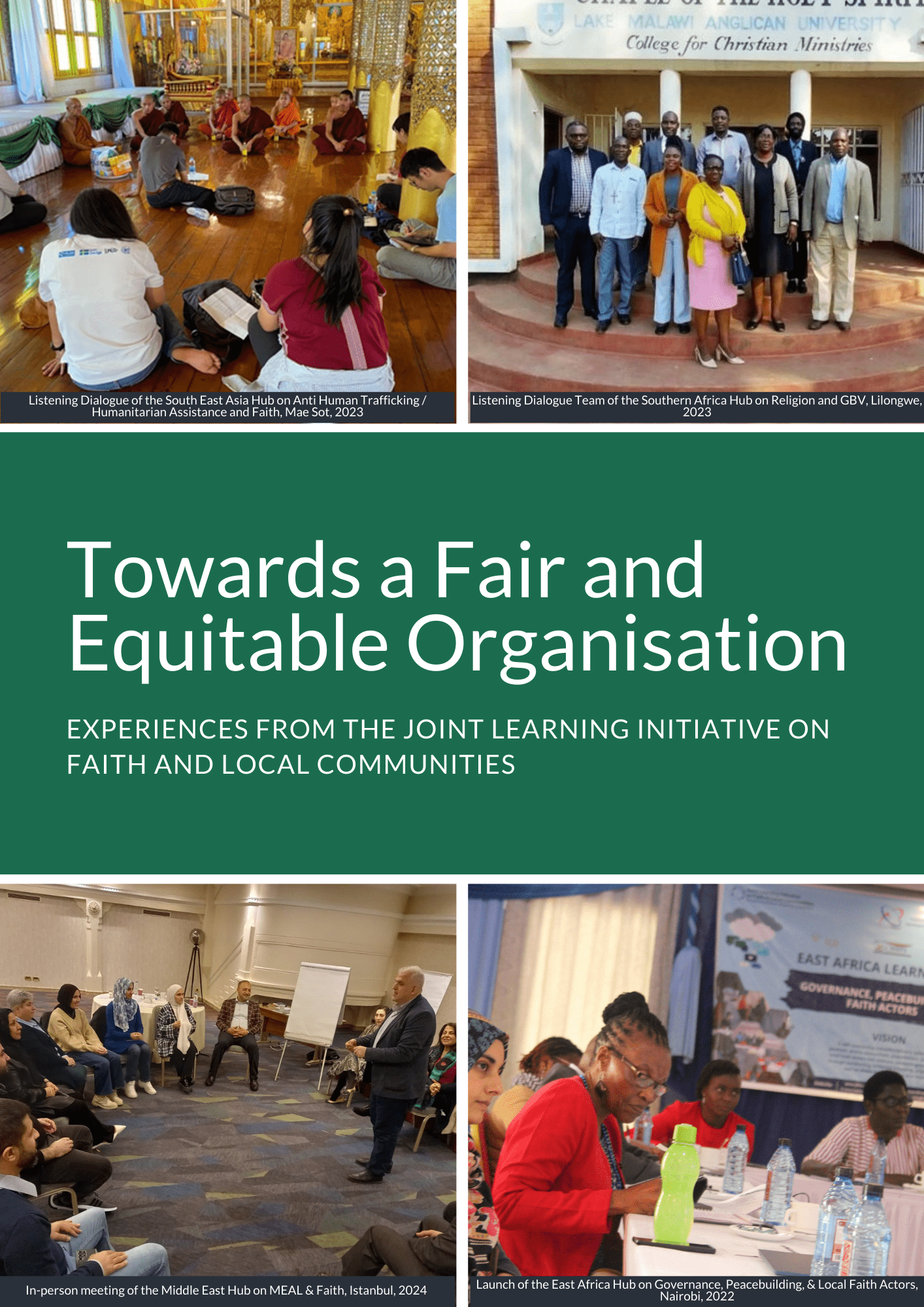
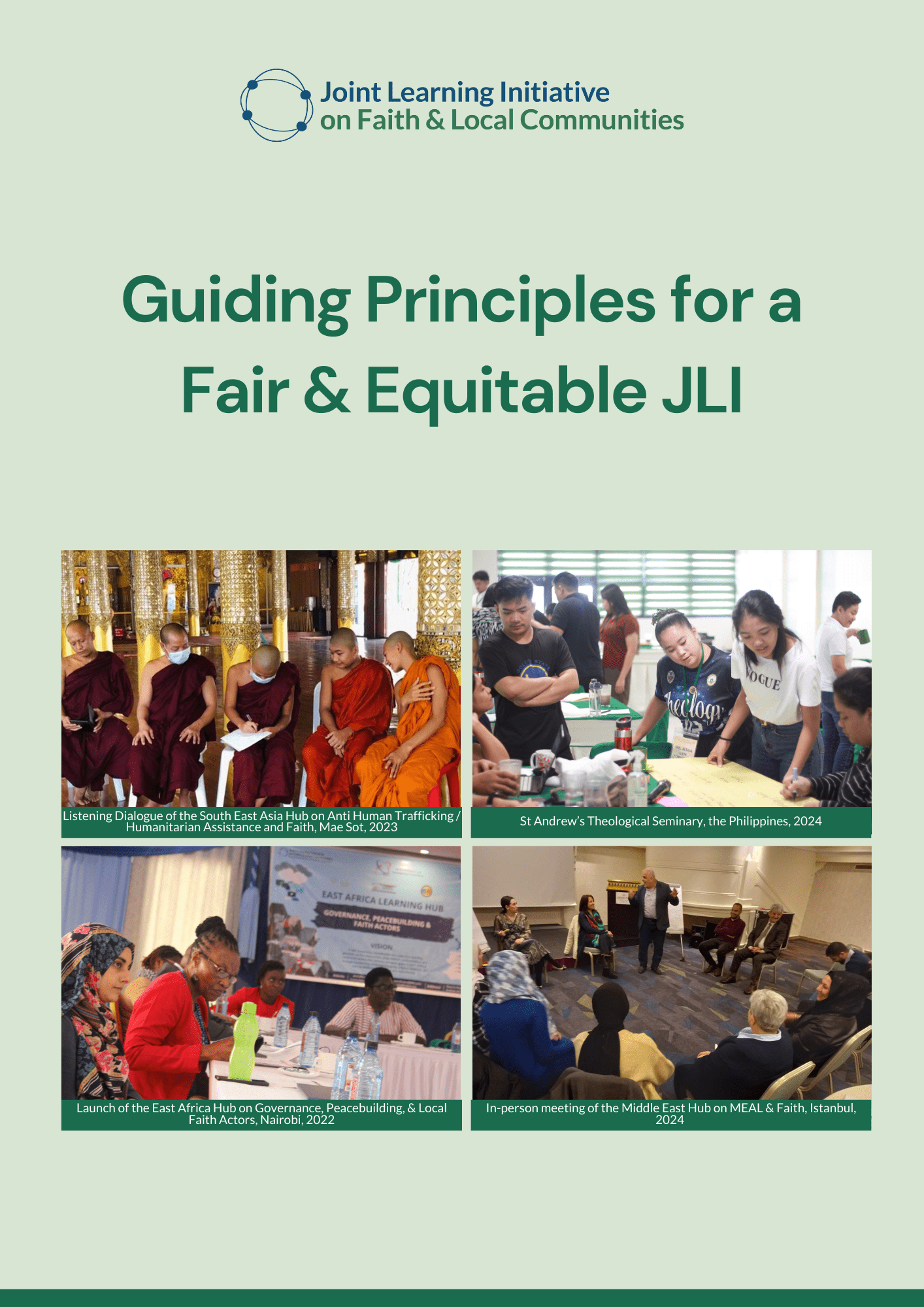
English
Español (Spanish)
العربية (Arabic)
Contact us:
If you have any questions in mind, or would like to join us and embark on the Fair & Equitable journey, please do not hesitate to reach out to [email protected]
Follow us on Twitter and stay updated about our progress on the Fair and Equitable Initiative. We will be tweeting with the hashtag #JLIFairEquitable.

